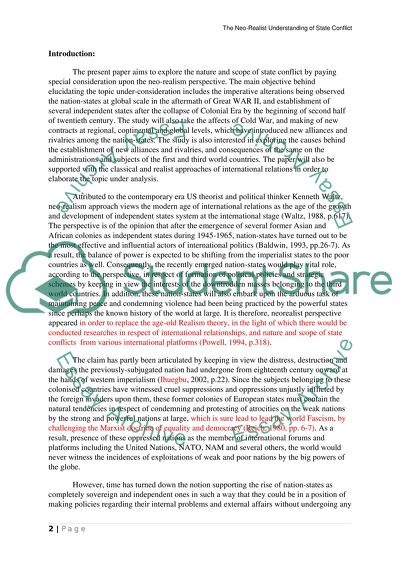Cite this document
(“The Neo-Realist Understanding of State Conflict Essay”, n.d.)
Retrieved de https://studentshare.org/history/1474184-the-neo-realist-understanding-of-state-conflict
Retrieved de https://studentshare.org/history/1474184-the-neo-realist-understanding-of-state-conflict
(The Neo-Realist Understanding of State Conflict Essay)
https://studentshare.org/history/1474184-the-neo-realist-understanding-of-state-conflict.
https://studentshare.org/history/1474184-the-neo-realist-understanding-of-state-conflict.
“The Neo-Realist Understanding of State Conflict Essay”, n.d. https://studentshare.org/history/1474184-the-neo-realist-understanding-of-state-conflict.


